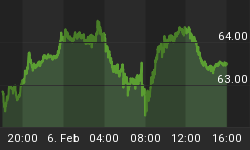Moving averages are one of the most widely followed indicator in technical analysis.
Simply put, when the price of an index or stock stays above a particular price moving average line on a chart, that price level serves as support -- a level where buyers reside.
If the price falls below a moving average line and "can't" break through from the underside, this price level is a line of resistance -- a price level where sellers hover.
That's an easy explanation of moving averages for you.
A commonly watched line is the 200-day moving average.
After the DJIA fell below its 200-day moving average in May, prices remained mainly below the line until June 15, when the market rose 213 points. But, as this chart from Elliott Wave International's June 16 Short Term Update shows, the NYSE volume has remained muted:

"There was no follow-through today. More stocks closed down than up on the day on the NYSE, within the S&P 500 and also for the DJ Composite. Today's Big Board volume was similarly slow relative to yesterday. ..." -- Steven Hochberg, Short Term Update, June 16, 2010
With a lack of buying conviction, how long will the stock indexes remain above the 200-day moving average?
For the answer, you need to look at the DJIA's Elliott wave structure. It strongly suggests the market will move in a definite direction in a matter of days or weeks.
Learn to integrate Elliott wave analysis with other technical disciplines. Read the FREE Ultimate Technical Analysis eBook to discover some of the favorite technical analysis methods used by the analysts at Elliott Wave International. Learn more and download your free, 50-page technical analysis ebook here.















